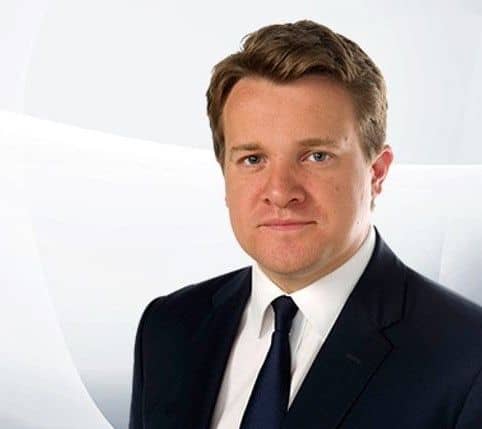What we see as journalists helps us hold the powerful to account
By Nick Martin, People & Politics Correspondent, Sky News
By far the most difficult part of being a journalist covering the coronavirus crisis is witnessing at first-hand the deaths of those struck down by this disease. That happened to me in early April. We were filming inside a care home where cases of coronavirus among the elderly residents were rising at an alarming rate. In one room an elderly man called John, who had tested positive for COVID-19 several days earlier, was gasping for air and as nurses tried to make him comfortable there seemed very little they could do. At one point, John reached out to the young nurse by his bedside and gently held her wrist. Lifting his head slightly off the pillow, he asked if he could go home. The young nurse, not even out of training and thrown into the middle of this crisis, explained that he couldn’t go home. Not yet. Not until he had fought off the virus. Sadly, a few hours later John died.
It had become clear a few days earlier that the daily death toll, reported by the government at their daily briefing, did not take into account people like John who had died in care homes across the United Kingdom. This did not seem right. Because many care homes, including the one in which I was filming, were so intrinsically linked to hospitals that it seemed strange to separate the two.
In a normal winter flu season, some nursing homes act as overflow wards to relieve pressure on NHS beds. As the pandemic gathered frightening pace, homes were asked to take more and more hospital discharges.
New guidance issued in early March encouraged hospitals to discharge elderly residents into care homes as much as possible. But in a lot of cases these elderly residents had caught COVID-19 and had been sent into nursing homes without being tested for the virus. Homes were advised to treat everybody coming into their setting as if they had COVID-19 – quarantining residents in their own rooms. That meant nursing staff had to take increased precautions like wearing more personal protective equipment (PPE) and washing their hands more regularly. But levels of PPE were, in the majority of cases, inadequate and often comprised of flimsy plastic aprons and paper masks. And so, the virus spread like wild fire.
On Sunday April 11, we broadcast the first of a series of special reports on Sky News from inside this stricken care home. We revealed a forgotten front line with a hidden death toll where lives were being lost in the shadows of a crisis.
Emails from care home owners began to fill my inbox and it became clear that one issue was at the forefront of their minds; if staff had access to tests like their NHS colleagues then care homes would no longer be fighting this disease blindfolded with one hand tied behind their back. Because they would know who had the disease and who did not.
The next day, at the daily Downing Street press conference, I asked Health Secretary Matt Hancock about care homes, death rates and testing. Any journalist asking a question at this press conference must log onto a video conferencing call first and then one-by-one is able to ask a question and a follow up. It was far from ideal but had become necessary as social distancing measures were introduced. In my 25 years’ as a journalist it is the most extraordinary press conference experience I have ever had. Millions of people are watching and it is important that questions reflect the big issues of the day. From then on it became clear that a disaster was unfolding in Britain’s care homes. And within a matter of days the government pledged to test all social care workers and announced extra funding for the sector. The success of these measures is still up for debate and time will tell if they are effective.
I will never forget what I witnessed in that care home. But it was important that I saw it for myself. Because as journalists That’s our job.
Author photo:

Nick Martin is Sky’s People & Politics Correspondent and is interested in how decisions made by politicians affect the lives of people in Britain.
He’s also reported from around the world on some of the biggest global stories of the last two decades, including the wars in Iraq and Afghanistan, three presidential elections as well as natural disasters. Nick has made documentaries on a wide range of issues from Mexico’s drug cartels, terrorism and the threat posed by plastics in the oceans. He’s been a journalist for 25 years having left school at 16 to join his local newspaper.